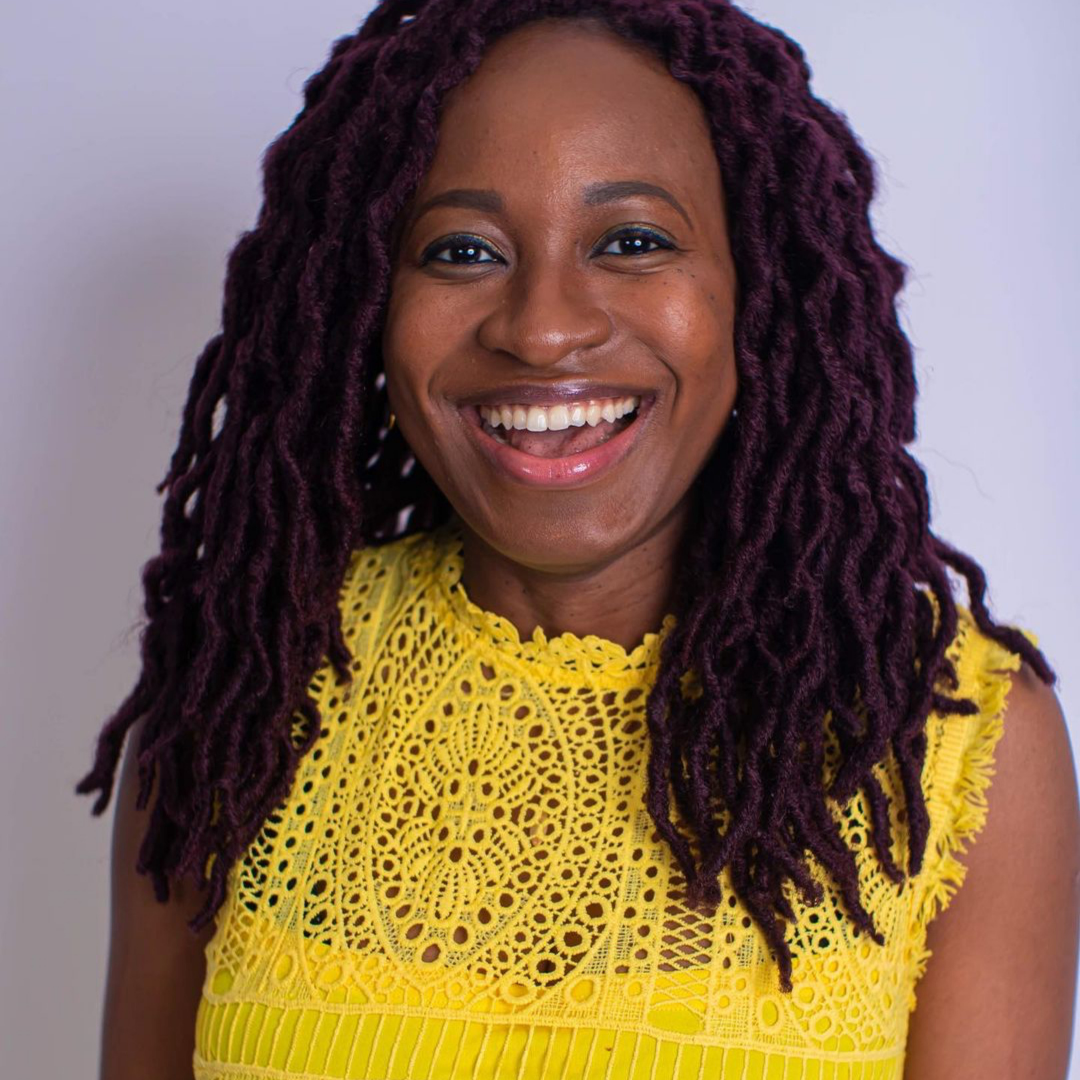
Hi, Teniola, can you tell me a little bit about your experience with endo?
My name is Teniola, I am 33 years old and I was diagnosed with Endometriosis in 2018. Prior to this, I had been experiencing increasingly horrible period pains for about 15 years. I was given stronger and stronger medications over the years, but everyone just assumed it was normal, and I was just one of the unlucky few, who had it worse than the rest. Many told me it would get better once I started having kids. Fast-forward to a few years ago and things began to ramp up. 2-3 days of every month were spent in agony, throwing up, on the bathroom floor. It became harder to go to work on those days as I just couldn’t function. All I could do was lie down or assume the foetal position with my hot water bottle and cry. I went to hospital a few times and was told I had cysts on my ovaries, but these disappeared by the next scan.
Around 2017, the pain began to creep outside of my periods. It began to hurt to use the loo. It hurt to pee. I was heavily bloated, and the fatigue was real! One day, I was in a lot of lower right abdominal pain, I left work at the close of day and decided that I was going to go to the hospital, and they had to figure out what was wrong. I guess you could say I was lucky because I went to a hospital that had an Endometriosis centre. After a series of tests, I was told to stop using Ibuprofen because it had given me gastritis as a result of too much use. They also said to return the next day for a scan. This Ultrasound scan changed my life. It was the most thorough scan I had ever done. I was told I had severe pelvic adhesions and endometriosis on my bowel. This was the beginning of a very long and still ongoing journey with endometriosis that has included multiple hospital visits, surgeries, hormonal medications and so on.
What made you want to start your Instagram page?
I started my Instagram Page called Not Defined by Endo because like many who have been diagnosed with a chronic condition that affects your life so completely, I felt scared, alone and unsure of what to do. But as I began to research, to really understand what the disease was all about, I realised how poorly understood, poorly diagnosed, and poorly talked-about this disease was. Especially for a disease that affects 1 in 10. So, I decided to lend my voice, to raise awareness about what was happening to a tenth of the population of women in the world, and to make sure people know that they are not alone. I knew that I could fight this disease, but I wanted to do it with an army of women going through the same. I have made so many amazing friends because of this disease. I have uplifted and been uplifted by so many and I’m grateful for the strength in spite of the pain. Like many say, the Endo club is the worst club with the best people.
What are some of the signs & symptoms of endometriosis?
Many say endometriosis is hard to diagnose, but really good experts have many times been able to diagnose patients just by listening to their symptoms. The first symptom I’d mention is extreme period pains. It is true that it is difficult to objectively measure pain that isn’t yours. However, pain that renders you incapable of standing up, and causes you to miss school or work is not normal. Other symptoms include infertility or subfertility, pain during urination (also called dysuria), pain during bowel movement (also called dyschezia), painful sexual intercourse (also called dyspareunia), bloody stools, bloating and other digestive issues, and even fatigue. True, many other illnesses can be responsible for some of these symptoms, but a combination of many of these can point to endometriosis. It is important to begin to track your symptoms as soon as possible. Write them down so that you can share this with a healthcare professional. Also, don’t be afraid to ask a lot of questions and ask for referral if necessary.Any tips on dealing with some of the more well-known symptoms?
The gold standard treatment for Endometriosis is an excision laparoscopic surgery where the endometriotic lesions are cut out completely. However, surgery might not always be quickly possible, or it might not be the right choice for the individual for various reasons. I believe Endometriosis therefore requires an integrative approach. Apart from surgery, some have found relief from hormonal medication such as birth control pills to reduce bleeding, GNRH medications which can put you in a temporary menopausal state so as to reduce the impact of the pain on your quality of life.
But it is so important to understand that hormonal medications are not a cure and should not be used long-term (especially without add-back therapy) because of their long-term effects such as bone density loss. Other ways of dealing with symptoms includes looking into your diet and lifestyle. Many endometriosis patients have found relief by eliminating or reducing high inflammation foods from their diets such as processed sugars. Many have also found relief by removing/reducing dairy, gluten, alcohol and excessive red meat. In addition, including fibre, nutrient-dense and low-inflammation meals really help to get rid of excess oestrogen (since endometriosis is an oestrogen-dominant condition).
Also, pelvic therapy can be really helpful in reducing pain and the central sensitization of the nervous system which makes us continue to feel pain (even sometimes when the cause of pain is removed) I always say there is no one-size fits all, and you have to try so many different things and see what works for you. But make sure you’re speaking to your specialists about all your options and always seek a second opinion. If a doctor tells you pregnancy or hysterectomy is a cure for Endometriosis, run out of there as fast as possible.
Can endometriosis be treated?
Well, endometriosis does not currently have a cure. This is because there isn’t even an agreement on what exactly causes endo, neither is there a biomarker that can be used to diagnose and confirm endometriosis without surgery. But there are many treatment options like I mentioned above. Starting from surgery, hormonal medication, pain management and stress-reduction. These are all helpful to treat endometriosis and help to improve the quality of life of sufferers.
My final words will be – please remember that you are not alone in this battle. So many people out there are also going through this. Educate yourself always, do your own research and speak for yourself.
Not defined by endo can be found here:
https://www.instagram.com/notdefinedbyendo/
